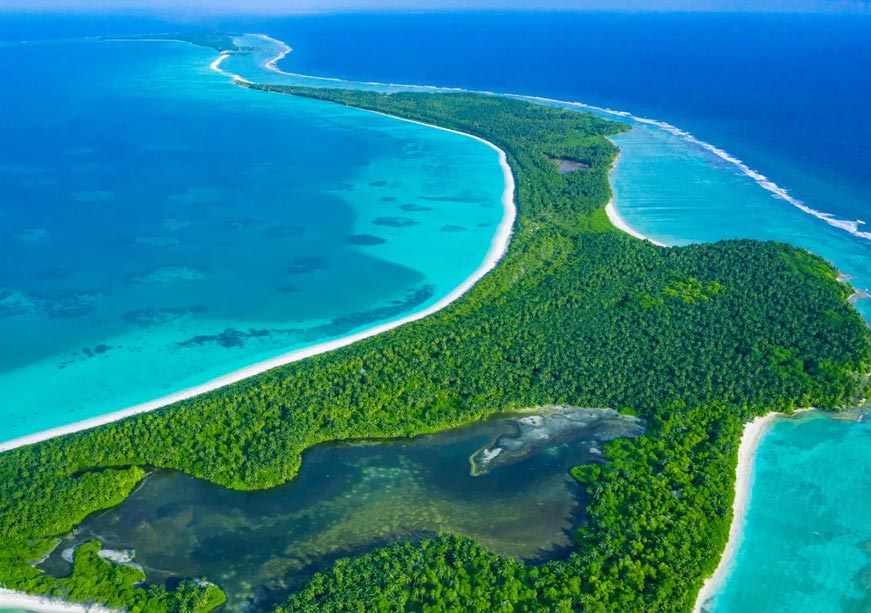SOURCE: AFI

With the recent transfer of sovereignty of the Chagos Archipelago from the United Kingdom to Mauritius—except for Diego Garcia, where a major U.S. military base is located—there is increasing discussion on the strategic benefits of the Indian Navy establishing a presence in the region. India, which has been a consistent supporter of Mauritius’ sovereignty claims over the Chagos Islands, played a significant role in the negotiations behind this historic transfer. Given the Indian Ocean’s critical role in global maritime trade and security, the idea of the Indian Navy having a base at Chagos warrants careful consideration.
The Chagos Archipelago is located in the central Indian Ocean, a region of immense strategic value. The islands are situated near major global shipping routes that link Asia, Africa, and the Middle East, making the area a vital maritime crossroads. The proximity of the Chagos Islands to key choke points such as the Straits of Malacca, Hormuz, and Bab-el-Mandeb further enhances their significance.
Currently, Diego Garcia, the largest island in the archipelago, hosts a highly secretive U.S. military base, providing the United States with critical capabilities for operations across the Indian Ocean, Middle East, and beyond. Although India has historically refrained from basing its military operations outside its mainland, the evolving geopolitical landscape suggests that a base in Chagos could offer significant advantages to the Indian Navy.
A naval base in the Chagos Archipelago would significantly improve India’s ability to monitor maritime activities across the Indian Ocean Region (IOR). This is crucial as India continues to grow its influence as a regional maritime power, countering increasing Chinese naval activity in the region. With Chagos positioned near key sea lines of communication (SLOCs), a base there would bolster India’s maritime surveillance, enabling it to track hostile submarines, warships, and merchant vessels with greater efficiency.
China has been steadily expanding its naval presence in the Indian Ocean, including through the establishment of bases, such as its facility in Djibouti. A base in the Chagos Islands would allow India to counterbalance this influence and prevent the Chinese Navy from gaining dominance in the IOR. Diego Garcia, the American base in Chagos, already plays a role in keeping the region stable, but an Indian presence would provide additional layers of security and deterrence against potential threats to Indian interests.
Establishing a naval base in Chagos would extend the Indian Navy’s operational reach deep into the Indian Ocean. It would offer a forward base to refuel, resupply, and repair ships and aircraft, enhancing India’s ability to maintain a sustained naval presence across the region. The base could also be used for anti-piracy operations, disaster relief missions, and other security operations in East Africa, the Middle East, and Southeast Asia.
With the U.S. continuing to operate from Diego Garcia, India’s proximity to this important facility would foster closer military cooperation between the two nations. India and the U.S. already engage in military exercises such as Malabar, and a shared interest in securing the Indian Ocean could lead to joint operations, information-sharing, and mutual support for maritime security.
In the broader context of the Indo-Pacific strategy, which aims to maintain a free and open region, an Indian naval base at Chagos would allow New Delhi to play a more proactive role. It would align India’s military strategy with its growing diplomatic efforts to foster security and stability in the region, reinforcing India’s role as a net security provider in the Indian Ocean.
The Chagos Archipelago represents a strategic opportunity for India to expand its maritime influence in the Indian Ocean, counter Chinese expansion, and strengthen its role as a key player in Indo-Pacific security. Establishing a naval base there could provide India with enhanced maritime awareness, logistical reach, and deeper cooperation with the U.S. in securing the region.
However, this move would require careful diplomacy and strategic planning to manage the potential risks and challenges. India must work closely with Mauritius and the U.S. to ensure that its presence is welcomed and contributes to the broader stability of the Indian Ocean Region.